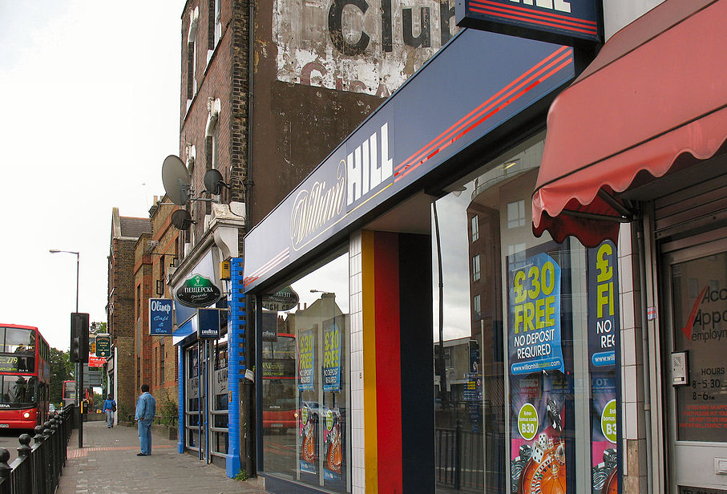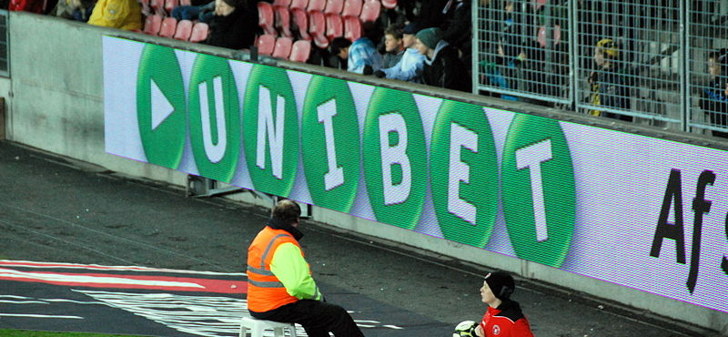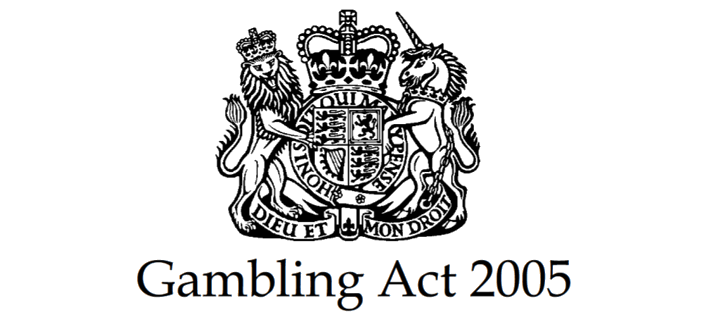 Believe it or not, the gambling industry’s ties to football don’t date back as far as you’d imagine. Originally, bookmakers were obsessed with horse racing; setting up illegal off-course businesses to compliment the legal ones that were based on the numerous race courses throughout the country. That is, in part, because of the fact that football was still a burgeoning sport by the time that the gambling industry was in full swing. Even when the government did decide to add some control to the betting world in 1928 the act that they came up with was the Racecourse Betting Act, offering specificity to what it entailed.
Believe it or not, the gambling industry’s ties to football don’t date back as far as you’d imagine. Originally, bookmakers were obsessed with horse racing; setting up illegal off-course businesses to compliment the legal ones that were based on the numerous race courses throughout the country. That is, in part, because of the fact that football was still a burgeoning sport by the time that the gambling industry was in full swing. Even when the government did decide to add some control to the betting world in 1928 the act that they came up with was the Racecourse Betting Act, offering specificity to what it entailed.
It wasn’t until the The Betting and Gaming Act in 1960 that sports other than horse racing could be bet on, with betting shops allowed to open on the high street the following year. That was when official, legal bets on football began to be tentatively explored. We’ll tell you more about the history of betting on football in this article, as well as have a look at where the industry is at nowadays.
We also look at how betting companies have become ingrained, even critical, to the the industry that is modern football and consider the impact of technology on the development of sports betting. Whether you agree or disagree with gambling advertising and sponsorship in football it is, for now at least, a central part of the culture. Bookmakers, betting sites and online casinos, pump billions each year into top level football, you will have noticed all clubs now have betting partners and recently even stadiums and clubs themselves have become owned by the bookies. Think of Stoke City’s Bet365 Stadium. Whatever the future holds for gambling and football the relationship will not be easy to untie, and in all likelihood is going to grow as both football and betting become more digital.
The Relationship Between Betting And Football

In the introduction we mentioned the The Betting and Gaming Act of 1960, which was, in many ways, a watershed moment for the gambling industry. That was when betting moved off the racecourses and onto the high street; a move that would change the face of betting forever. Of course legal on-course bookmakers weren’t the only way of placing a bet prior to 1960, so it would be naive to think that no one had a flutter on the result of football matches before it became legal to do is. It’s just that the betting back then would have been with less than reputable characters that might not have been interested in the welfare of their customers or with high end bookmakers who would only take big bets on credit from rich clients.
The Betting and Gaming Act might well have changed the way bookmakers operated, but even before that there were certain companies that wanted to seize upon the growing love of football in the United Kingdom. As early as 1923 Littlewoods became the first company to offer a pools system to punters when they sold entries outside Old Trafford. They went on to become the biggest pools operator in the country, alongside Vernons and Zetters. The first group of people ever to win a million pound on football did so thanks to Littlewoods pools in 1986. Later, in the 1940s, William Hill became the first company to offer a fixed-odds football coupon on football.
Betting on football proliferated through he 1960’s to the new millennium through easy access betting shops that allowed people to bet on the match, in cash, without hassle for the first time. The 2000’s saw some of the most widespread changes to the relationship between the gambling industry and football. largely due to the changing nature of the industry now beginning to move online and abroad to avoid taxes, in 2001 laws were changed. The 9p in the pound stake tax for punters was removed in favour of a levy on the profits of the bookmaker. This change was an instant success with the public and betting became even more mainstream.
In 2002 the old minimum trebles rule on football match betting was removed. Prior to this football bets needed to be an accumulator with three or more selections by law. From this point on single bets could now be placed on any matches. Resulting from this change a whole host of new coupons and bet types emerged such as first goalscorer, correct score, both teams to score, scorecasts, etc.
The ever increasing prevalence of online betting since has not only increased the accessibility and convenience for customers who want to bet on football, it has also made it more mainstream. Most people now don’t need to go into the old stuffy bookmakers shops and this has attracted a whole new wide demographic of people who would never previously have placed footy bets. The exponential increase in advertising of these companies through football has probably further increased this meteoric rise in football betting over the last fifteen years.
Nowadays football is the most bet on sport in the UK by some distance, well over half the bets placed on all sports is placed on football. How did we get here, then, considering the industry’s relatively slow adoption of the sport as something that people could regularly bet on? We’ve now got the point that virtually every football club in the country has a registered partner bookmaker, often with stalls within the ground, and more than a few have sponsorship deals with some of the biggest bookies. In recent years even casino sites have started sponsoring clubs, this is a sign of the commercial power of football, it isn’t even about marketing to fans who want to bet on the game any more, its about showing adverts to global audiences.
The change in attitude came about largely because of the shift in how football was seen. It wasn’t always considered to be the national sport, after all. Indeed, when Fred and Peter Done established the company that would later become Betfred, they did so on the back of money gained from a winning bet on England to be victorious in the 1966 World Cup.
Bookmakers And Football Clubs Today

By September of 2019, nearly half of the clubs playing football in the Premier League had a shirt sponsorship deal with a gambling company. Look down to the Championship and League One and you’d have discovered that another sixteen clubs had the same sort of deals in place. A decent amount of those without a shirt sponsorship deal would still have had a partnership of some sort with a betting company, normally coming under the banner of them being a ‘principal partner’.
Why is it that some football clubs have opted to go with sponsorship from bookies whilst others have not? It would be easy to suggest that this was a moral decision, yet in most cases it’s simply a matter of them getting a more lucrative deal from another company. After all, this is a sport that has been sponsored by alcohol and tobacco companies in the past, so suggestions of a moral stand are almost certainly wide of the mark. That’s not to say that moral questions are never asked. Forest Green Rovers are currently an ethically run football club, serving vegan food and forgoing the sponsorship opportunities offered by bookmakers.
The problem that the likes of Forest Green and others that might want to put forward a moral objection to betting companies have got is that the Football Association and leagues as a whole don’t agree with them. After all, at the time of writing FGR ply their trade in League Two, which is currently sponsored by Sky Bet. Even if it’s sponsored by something else by the time you get around to reading this article, the fact that the Championship, League One and League Two were at one point sponsored by a betting company tells you everything you need to know about football’s relationship with the betting industry.
Gambling Sponsorship and Adverts in Football

One of the biggest issues that exists for those that would like more separation between football and gambling is the close relationship that exists between the two. When we discussed the numerous and varied clubs that have sponsorship deals with gambling companies earlier, the one thing we didn’t do was mention why these companies might want a slice of the British footballing market. The reality is that football, and the English leagues in particular, is the most watched sport in the world. The average Premier League game has a worldwide audience of around twelve million people, compared to 4.5 million for Serie A in Italy and 2 million apiece for Spain’s La Liga and Germany’s Bundesliga.
It is therefore quite obvious why a company that wants to drum up business around the globe might want to use the Premier League and other British divisions to help advertise its wares. Not all companies have that global ambition, of course, but even so the domestic audience for an average match on a Sunday is about the two million mark. Consequently, companies that might be hoping to get their message out to a British TV audience is unlikely to find a quicker way of doing so than via football sponsorship.
There is no other sport that is played on as regular a basis and offers such a large audience, whichever you way you look at the figures. Bookmakers would be able to survive if they could no longer sponsor football teams or advertise in the grounds, but they would almost certainly have to take a bit of a loss first. In fact, you may have noticed in recent years that many companies that sponsor football or advertise in the stadiums are not even targeting UK customers. It is common these days to see an ad for a Chinese betting site flickering around an English stadium, capitalising on the huge global audiences, that can well exceed UK viewing figures.
As for football, how well could the greatest sport on earth survive without the money brought into it by sponsorship from gambling companies? That is open to some dispute. On the one side, Sky Bet’s deal with the Football League was rumoured to be worth around £6 million a season when it was first signed back in 2013. That’s obviously a lot of money, but the previous sponsor npower was believed to have paid £7 million a year. An argument could be made that the Football League could have made more money if they’d gone with a non-gambling focussed company instead. The problem was that none were forthcoming with an offer. In fact the bookie extended their contract with the football league to 2024, making the 11 year deal one of the longest in football history.
On the other side of the argument, how easy or otherwise it would be for an individual club to survive depends entirely on the team. There’s no question that the giants of the footballing world, such as Liverpool, Manchester United and Chelsea, would be able to cope from a financial point of view if gambling products could no longer sponsor football teams. Sides lower down the leagues, however, already find it difficult to make ends meet before the likelihood of sponsorship being removed is even discussed. Manchester United had a deal with Chevrolet worth £47 million a season, so if a side like Everton had to give up the sponsorship deal they had with Kenyan betting firm SportPesa, worth £9.6 million a year, and take one worth less money, how could they ever hope to truly compete in an already financially unfair league?
That is, arguably, the biggest problem that critics of gambling companies haven’t been able to solve. Even if the likes of bookmakers and online casinos could be stopped from sponsoring football matches, would either party be happy with that being the case? It seems extremely unlikely. After all, football is worth billions of pounds in bets every single year, being by far the most popular sport for anyone to bet on.
Still, the question may not be a moral one for football clubs much longer. Serious scrutiny of the gambling sponsorship in football has taken place of late, with various parliamentary reports recommending a ban on gambling firms sponsoring clubs. While this may be a responsible thing to do it remains to be seen whether smaller clubs will be able to survive without the revenues that gambling firms bring in.
The Impact Of Online Betting

Betting on football has long been a popular past-time, but the advent and development of online betting has not only changed how and when we can bet but the way that we do it. In-Play betting revolutionised the industry, with punters no longer having to stick to such mainstream bets as who will win or what the score will be.
Nowadays you can opt to bet on the likes of how many corners there’ll be, which team will win the next throw-in or the time of the first yellow card. The market has opened to such an extent that the number of bets available is almost limitless. Is this a good thing? That will probably depend on how well you can restrict your betting. If you’re the sort of person that goes in knowing you have a limit to how much you can afford to bet and are able to stick to it then you’ll be fine. If you tend to get lost in the moment, however, you could spend ninety minutes throwing good money after bad.
The same can be said of how and when we can bet now thanks to the changes brought about by online gambling. You could be at the ground, watching a match live, and decide to have a flutter. That’s all well and good if you normally bet in a cool and calculated manner, but if you sometimes bet emotionally then you might get caught up in the moment and make a few mistakes. Most people who enjoy betting are never likely to complain about the amount of places they can bet in or the way they’re able to do it. That doesn’t automatically mean that it’s a good thing, but consumers having more choice will be seen as a positive more often than not.
Biggest and Well Known UK Football Bookmakers

Britain has a love affair with sports betting, wagering more per head than any other nation on the planet. This long relationship means that not only are British companies the biggest sports betting companies in the world it also means that the brands are the most recognisable.
Even those who have never placed a bet will recognise the brands below from the high street, sports venues, tv, etc. Whatever way you look at it these companies are part of the UK landscape just as much as Argos and Tescos.
This section isn’t about recommending you sign up or use their offers or promotions or anything, but rather telling you about their history and explaining why they have become just as associated with football just as much as Pukka Pies and Bovril.
Coral
 Coral’s history dates back to the 1920s, when Joe Coral began operating a pitch on numerous racecourses around the country. He soon teamed up with a mate and began to operate speedway meetings at Harringay before opening a London-based credit office. He was also one of the first bookmakers to take advantage of the 1960 Betting and Gaming Act, which allowed bookies to open shops on the high street. The company grew exponentially over the years before merging with Ladbrokes in 2015 to form Ladbrokes Coral plc and were then bought out by GVC (now Entain) who also own brands such as Party Poker. The two bookmakers are still run as separate companies, however.
Coral’s history dates back to the 1920s, when Joe Coral began operating a pitch on numerous racecourses around the country. He soon teamed up with a mate and began to operate speedway meetings at Harringay before opening a London-based credit office. He was also one of the first bookmakers to take advantage of the 1960 Betting and Gaming Act, which allowed bookies to open shops on the high street. The company grew exponentially over the years before merging with Ladbrokes in 2015 to form Ladbrokes Coral plc and were then bought out by GVC (now Entain) who also own brands such as Party Poker. The two bookmakers are still run as separate companies, however.
Ladbrokes
 Speaking of which… Ladbrokes is one of the biggest bookmaking businesses in the world nowadays, covering every sport you could think of in as much detail as you could want. Back when the company was formed in 1886, however, it was intended to be a commissioning agent for horses trained at Ladbroke Hall. Even when the business began to develop it was still an exclusive affair, aimed mainly at upper classes and the aristocracy. It has grown over the years thanks in no small part to the buying up of smaller companies, including the 1989 purchase of Vernons Pools. The merger with Coral has made Ladbrokes Coral plc one of the most powerful companies in the business.
Speaking of which… Ladbrokes is one of the biggest bookmaking businesses in the world nowadays, covering every sport you could think of in as much detail as you could want. Back when the company was formed in 1886, however, it was intended to be a commissioning agent for horses trained at Ladbroke Hall. Even when the business began to develop it was still an exclusive affair, aimed mainly at upper classes and the aristocracy. It has grown over the years thanks in no small part to the buying up of smaller companies, including the 1989 purchase of Vernons Pools. The merger with Coral has made Ladbrokes Coral plc one of the most powerful companies in the business.
Bet365
 There’s an argument that Bet365 has the closest ties to football of all of the bookies on this list, despite being online-only and far younger. That’s because it was started by the daughter of the several-time chairman of Stoke City Football Club, Peter Coates. Denise Coates borrowed money against the chain of betting shops that her father had started in order to get the capital to start the company back in 2000. Some say that Bet365 have done more to change the face of football betting than any other, thanks to inventing the likes of In-Play betting. They also came up with Cash Out system, which has now been adopted by virtually every major bookmaker in the country.
There’s an argument that Bet365 has the closest ties to football of all of the bookies on this list, despite being online-only and far younger. That’s because it was started by the daughter of the several-time chairman of Stoke City Football Club, Peter Coates. Denise Coates borrowed money against the chain of betting shops that her father had started in order to get the capital to start the company back in 2000. Some say that Bet365 have done more to change the face of football betting than any other, thanks to inventing the likes of In-Play betting. They also came up with Cash Out system, which has now been adopted by virtually every major bookmaker in the country.
William Hill
 Every bookmaker offers customers something slightly different from their rival, whether that be the innovation of Bet365 or the close ties to football of Betfred. For William Hill, the biggest thing that they can promise their customers is reliability and name recognition. Started in 1934, at a time when betting was mostly illegal in the UK, William Hill went on to become one of the most instantly recognisable names in gambling. Though mostly known for their horse racing coverage, William Hill keep up with their rivals in terms of offers and promotions on football matches. They made efforts to spread themselves into the foreign market in 2009 by sponsoring the Spanish football team Malaga. In 2020 William Hill were bought by Caesars Entertainment in the US.
Every bookmaker offers customers something slightly different from their rival, whether that be the innovation of Bet365 or the close ties to football of Betfred. For William Hill, the biggest thing that they can promise their customers is reliability and name recognition. Started in 1934, at a time when betting was mostly illegal in the UK, William Hill went on to become one of the most instantly recognisable names in gambling. Though mostly known for their horse racing coverage, William Hill keep up with their rivals in terms of offers and promotions on football matches. They made efforts to spread themselves into the foreign market in 2009 by sponsoring the Spanish football team Malaga. In 2020 William Hill were bought by Caesars Entertainment in the US.
BetVictor
 BetVictor was started in 1946 by the owner of Walthamstow Stadium, William Chandler. Named after its former chairman, Victor Chandler, the company was the first to move its operations outside of England when it shifted things to Gibraltar in 1998. It’s widely believed that this move was part of the reason that Gordon Brown abolished tax on gambling when he released his budget in 2001. In terms of BetVictor’s footballing pedigree, they’ve been principal sponsors of the likes of Liverpool and Chelsea Football Clubs in the past. That in itself doesn’t guarantee anything, of course, but it gives you some indication of the seriousness with which they take their football coverage.
BetVictor was started in 1946 by the owner of Walthamstow Stadium, William Chandler. Named after its former chairman, Victor Chandler, the company was the first to move its operations outside of England when it shifted things to Gibraltar in 1998. It’s widely believed that this move was part of the reason that Gordon Brown abolished tax on gambling when he released his budget in 2001. In terms of BetVictor’s footballing pedigree, they’ve been principal sponsors of the likes of Liverpool and Chelsea Football Clubs in the past. That in itself doesn’t guarantee anything, of course, but it gives you some indication of the seriousness with which they take their football coverage.
Betfred
 Fred and Peter Done, who founded Betfred back in the 1960s, are both Manchester United supporters. Still, don’t hold that against them. As mentioned earlier, they could afford to open their first betting shop because of money that had won by having a flutter on England winning the World Cup in 1966. You don’t get much more football related that a company formed on the back of a controversial goal! The company originally had the rather uninspiring name of Done Bookmakers, getting their Betfred rebrand in 2004. Six years earlier they became the first bookie to payout early on a bet when they declared Manchester United to be Premier League winners, before Arsenal went on to actually win it.
Fred and Peter Done, who founded Betfred back in the 1960s, are both Manchester United supporters. Still, don’t hold that against them. As mentioned earlier, they could afford to open their first betting shop because of money that had won by having a flutter on England winning the World Cup in 1966. You don’t get much more football related that a company formed on the back of a controversial goal! The company originally had the rather uninspiring name of Done Bookmakers, getting their Betfred rebrand in 2004. Six years earlier they became the first bookie to payout early on a bet when they declared Manchester United to be Premier League winners, before Arsenal went on to actually win it.
Betfair
 If Bet365 revolutionised the industry thanks to In-Play betting and the Cash Out function, Betfair did so when they invented and popularised the betting exchange. We won’t bore you with the details of how that works now, but basically it’s a completely different way of betting and gives you the chance to become the bookmaker. Also like Bet365, Betfair was started in the year 2000 and has made remarkable inroads into the betting industry since then. In 2016 Betfair merged with Paddy Power to become Paddy Power Betfair. Along with Ladbrokes Coral plc, Paddy Power Betfair is a veritable giant in the gambling world. That group has now also merged with the company behind Poker Stars and Sky Bet.
If Bet365 revolutionised the industry thanks to In-Play betting and the Cash Out function, Betfair did so when they invented and popularised the betting exchange. We won’t bore you with the details of how that works now, but basically it’s a completely different way of betting and gives you the chance to become the bookmaker. Also like Bet365, Betfair was started in the year 2000 and has made remarkable inroads into the betting industry since then. In 2016 Betfair merged with Paddy Power to become Paddy Power Betfair. Along with Ladbrokes Coral plc, Paddy Power Betfair is a veritable giant in the gambling world. That group has now also merged with the company behind Poker Stars and Sky Bet.
The Ethics of Football’s Relationship With Gambling

The very nature of the crossover between football and betting is a tricky one for some people to parse. Should children see their idols kiss shirts with a betting company’s name plastered across the front of them? Should they be allowed to wear replica shirts with such branding on them? Youth teams aren’t allowed to wear shirts that a sponsored by betting companies, with the FA ruling that products that are deemed to be ‘detrimental to the welfare, health or general interests of young persons’ shouldn’t be allowed. Yet isn’t that all a bit half-hearted when the youngsters see professional footballers run around wearing adverts for exactly those products on their shirts?
Gambling can be addictive, that much is generally accepted across the board nowadays. It’s not just children that can influenced by the presence of advertising for gambling industries on football shirts. Indeed, the Labour shadow minister for digital, culture, media and sport said in 2017, “Shirt sponsorship sends out a message that football clubs don’t take problem gambling among their own fans seriously enough”. If someone has got an unhealthy relationship with gambling, does it help them to see the football team they love and support wearing a shirt with a banner on it effectively declaring it a fun thing to do?
The reality is that millions of people place bets on a daily basis and only a fraction of them are addicted to it, therefore is it sending out the wrong message to advertise gambling companies or is it helping customers find a reliable company to bet with? It is a moral conundrum that has not yet been answered, and there can never be a universal correct answer. The comparison between gambling and both tobacco and alcohol isn’t quite fair, with the latter two able to kill consumers. That’s not to belittle the influence of gambling on those that have been badly affected by it, as something that can see you lose thousands of pounds could easily ruin a life if the consumer doesn’t get a grip on their addiction.
Betting Laws and Gambling Licensing in the UK

There have been many betting and gaming acts through the years, although many of these were for the protection of government revenues rather than for the benefit of vulnerable people. The Gambling Act of 2005 was the first piece of legislation that sought to not only license and control gambling properly, it was the first set of laws brought in to help stop problem gambling. Part of the act also crated the Gambling Commission, an independent body under the umbrella of the digital, culture, media and sport department that licences betting companies and enforces gambling legislation.
By licensing companies to operate in the UK (even if they are online and/or based abroad) it forces them to adhere to a strict code of conduct. This includes things like scrutinising identity and fund sources to prevent fraud or access to under 18’s. Companies are also obliged to offer tools and means to help you gamble safely and responsibly (see below) and not mislead you with promotions or misleading language.
The 2014 Amendment to the Act also started to put more restrictions and guidelines on advertising. In combination with the Advertising Standards Agency and CAP guidelines, betting in the UK is now more heavily regulated than anywhere else in the world where betting is legal. Of course licensing also has the added benefit of making taxing the industry easier. Although tax for the punter was removed in 2001 all operators pay a point of consumption tax on profits made in the UK, this means in one way or another the tax cost still gets passed on to you through larger odds margins.
It is important to only bet with licensed bookmakers and betting sites within the UK, while it is the law that companies must be licensed to operate many shady sites exist that flout this. If you gamble with an unlicensed bookmaker you risk not only your funds but also becoming a victim of fraud. You can search for any operator licenses on the Gambling Commission website, if they don’t show up don’t bet with them.
Responsible and Safe Gambling

Gambling companies have to walk a very fine line. On the one hand the simple truth is that they are businesses and they want your money. On the other, they have acknowledged that they have a responsibility to ensure that people gamble sensible and within their means. That’s why all of the reputable bookmakers have information about companies such as GambleAware, the Responsible Gambling Trust, and Gamblers Anonymous (as well as other independent charities) on their websites. There are numerous methods available to you to people get their gambling problems under control, although as with any vice this only matters if the person makes the decision to seek that help.
The most reputable bookies don’t want to see you lose your house and home. They want to take the money from you that you can afford to lose. Before you place a single bet with a decent, licensed, bookmaker you’ll be asked to establish deposit limits on your account, stopping you from paying in more money than you should on a daily basis. You can also restrict the parts of the site that you’ll have access to. Find that you can control what you’re betting on in the sportsbook but struggle when it comes to slot machines? You can simply block your own access to the slots section of a site with many.
Some people can handle having a flutter in short spurts but struggle to limit how long they allow themselves to keep gambling for. In that instance you can set yourself reminders to let you know how long your session has been going on for. You can also give yourself a time out that will last from one day to six weeks if you’re in the UK, stopping you from being able to log into your account and place a bet in that time. If you feel as though that’s still not enough then you can opt for a total self-exclusion instead, completely closing your account and stopping it from being re-opened for anywhere between six months and five years.
Companies can and will do their utmost to help those of you that have a less than healthy relationship with gambling. Ultimately, though, there’s only so much they can do and the main responsibility lies with the individual user. It’s difficult for a gambling company to know how much you can afford to bet with, so it wouldn’t be right or fair on other customers for them to put a specific numerical limit on the amount of money each consumer can bet with. Whether gambling companies should exist at all is something that each person will have a differing opinion on, but as long as they are around they will continue to operate as a business that does the best they can for their customers.
The Future Of Betting And Football
As you’ll have gathered from the rest of this article, the relationship between the betting industry and football is a complicated one. How things go in the future is anyone’s guess, perhaps depending on the government in power. The Labour Party seems determined to limit the control of bookmakers within football, but the Conservative Party evidently don’t feel the same way about the issue. Even if sponsorship is removed from the game, however, it would be nigh on impossible to stop people from gambling on football altogether.
The least likely scenario is that gambling is removed from the world of football completely, in the same was as happened with tobacco in the past. The more likely version of events is that there is a significant increase in legislation around the subject, perhaps stopping gambling companies from being able to sponsor shirts or have on-site bookmakers in football grounds. That is something of a guess, though, so we certainly wouldn’t bet on it…
